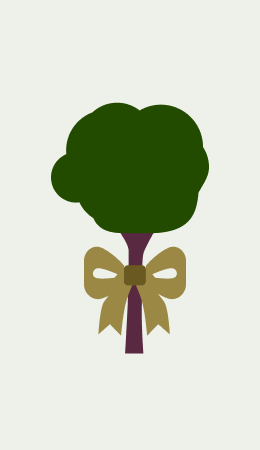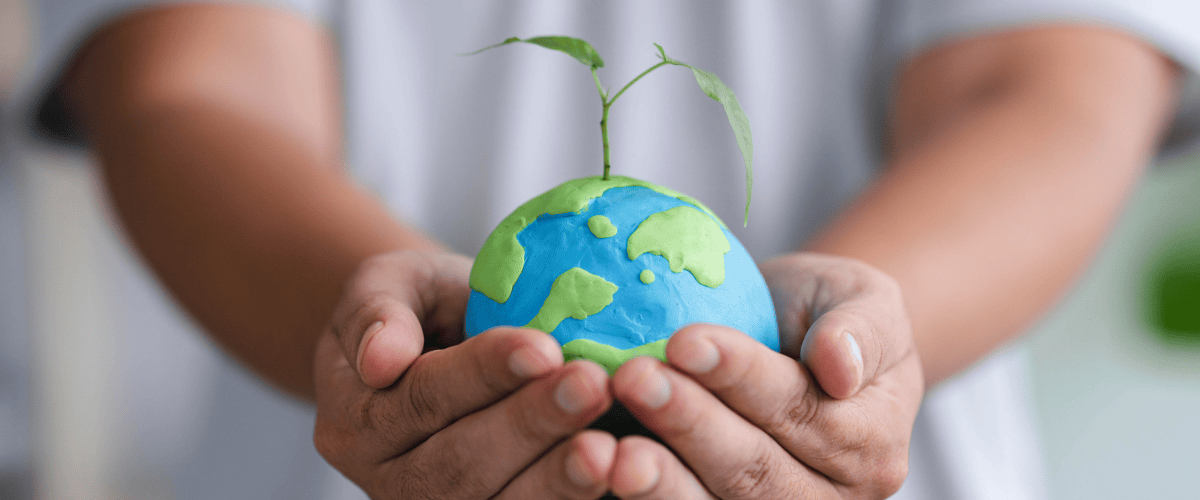Update from our fruit tree project in Punjab

Dear tree lovers,
You may remember our last Blog-Post from India, where we presented our pilot project. Now it's time for an update: Not only have we significantly expanded the project since then, but I, Chief Transparency Officer Hannah, have just returned from an exciting on-site visit.
Our project is being carried out in India's northwest, Punjab, a state with about 30 million inhabitants, very hot temperatures and little water. In the border region with Pakistan, around Abohar, the majority of the population is dependent on agriculture. Smallholders mainly grow wheat and cotton on their land, field after field as far as the eye can see. Even if there is something romantic about the view of the vast fields, the cultivation of such monocultures is problematic in two respects: First, the monocultures, which are often associated with the use of pesticides, have a poor record in terms of long-term conservation of biodiversity and soil health. Secondly, the farmers never get out of the poverty trap through cultivation: The financial returns are so low that there is hardly any money left that could be invested in machines, warehouses or other things and thus earn more in the future. With regard to wheat, there is a state-guaranteed minimum price, but even this is hardly enough to generate additional profit. In a way, farmers find themselves in a vicious circle that is difficult to get out of. The small farmers do not have enough to live on, and they do not improve, no matter how much they work.
In order to tackle these two problems, our project was created in 2021. It all started with a message from Yuvi, the son of an orange farmer near Abohar, who brought the problems in the region to our attention in 2021. His solution sounded as simple as it made sense: give away fruit trees to the small farmers so that they can be integrated into the existing monocultures. This interplanting not only improves soil health, but results in significantly higher yields once the trees bear fruit. Why isn't everyone already doing this? I ask Yuvi. "There is just not enough knowledge," Yuvi replies. “And the seedlings are way too expensive for those who can't save. Buying seedlings now that will only bear fruit in two or three years is simply impossible here, but it could improve life enormously in the long term.”
Yuvi's father recognized the potential of fruit trees many years ago and started cultivating orange trees. He was able to give Yuvi and his brother an education that opened many doors for him. Yuvi now lives in Berlin, but is still very connected to his home region and wants to help improve local problems. “I had the privilege of studying and am now allowed to work in Europe. But there are many problems at home. I would like to give something back,” says Yuvi.
Together with Yuvi and his father, we started the project on a small scale in 2021 and distributed citrus trees to farmers in the region, accompanied by workshops on agroforestry and the potential of interim plantings. The response was incredible and it quickly became clear how great potential the project has in the region to create social, ecological and economic impact.
That's why we've now significantly expanded the project: We've set up our own tree nursery on Yuvi's father's land, where around 80,000 seedlings are currently being grown in order to eventually bear fruit as pear, plum, orange, peach or guava trees carry. The tree nursery looks like a green oasis in the otherwise very dry state. Everything is done organically and without the use of pesticides, a large mountain of vermicompost at the edge of the nursery provides organic matter to ensure the seedlings thrive.
In addition, there is a lot of life here: Many people on site have received a basis of income through the tree nursery, twenty women alone work on site every day. "We usually only have one job when it's harvest season," some women tell me. “But now we can earn extra money for our family. In addition, the work is fun, there is a nice atmosphere here, and for us it is a place for exchange and encounters.” You notice that immediately, there is a lot of laughing and joking. Another farmer tells how working in the nursery got him out of the depression. After the death of his wife, he was mentally unwell and since it was not the harvest season, he had no distractions. The nursery now gives him a sense of purpose and participation, Yuvi translates.
Ravi, the on-site supervisor, raves about the work. He emphasizes how important it is to start growing now what will be in long-term demand. Pear trees, for example, take eight years to bear fruit, but they are in increasing demand because they can be used to make natural cosmetics that help with skin problems, he says. You can also combine these with orange trees, which bear fruit after about two to three years. This is how the change happens slowly and sustainably. What does he want for the future? I ask Ravi. He replies that we are expanding the project across the state.
At the end of 2023, the seedlings will be distributed to the farmers after advice on which combination of varieties makes sense for the respective country and on which farms the project can create the most impact. In the meantime, we are working on continuously expanding the project and enlarging the nursery. But what we can already see is that even if the trees will only bear fruit in a few years, a major impact is already being achieved on a social and economic level. Women are empowered and can finance themselves independently, people are given prospects and education. For me, the visit was renewed proof of the power of trees in relation to sustainable development in its ecological, economic and social dimensions.
"I can't believe what we've accomplished here together," Yuvi tells me. “What an email can do!” I can only agree - and thank you all for your support. Projects like this would not be possible without you!
From trees with love,
Hannah from GROW MY TREE by Impact Hero Team
write a comment
Comments are approved before posting.








